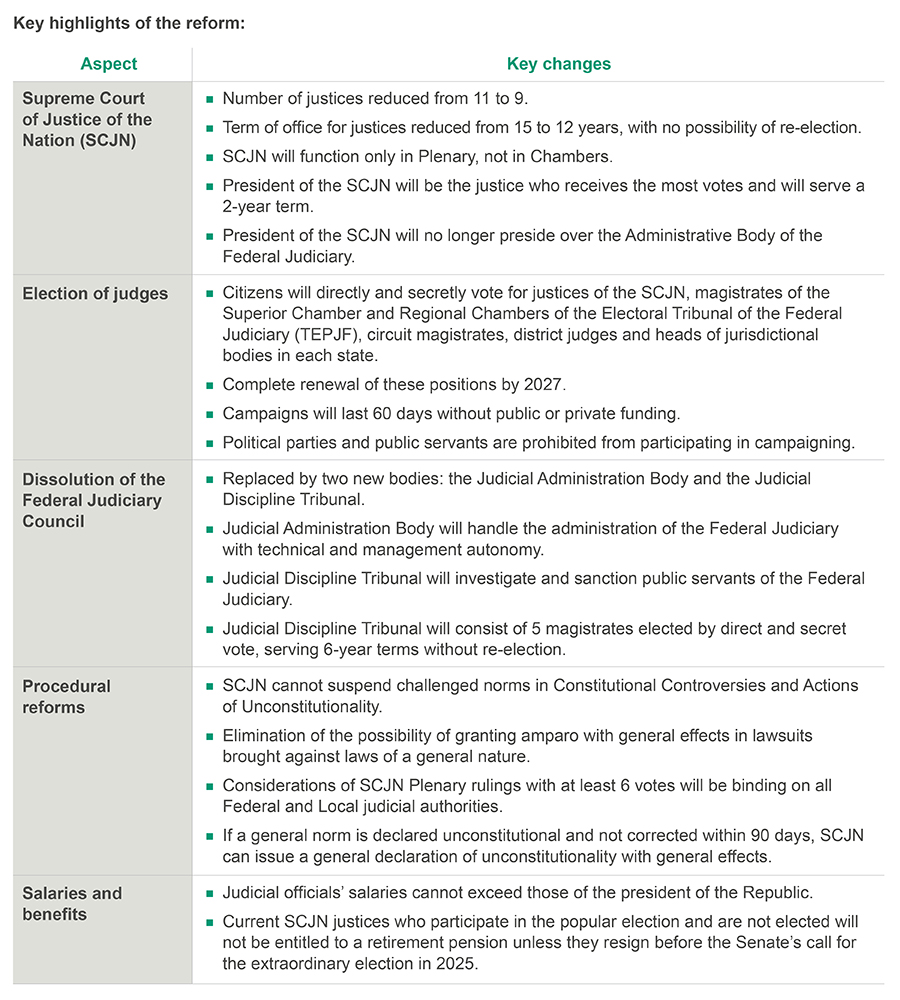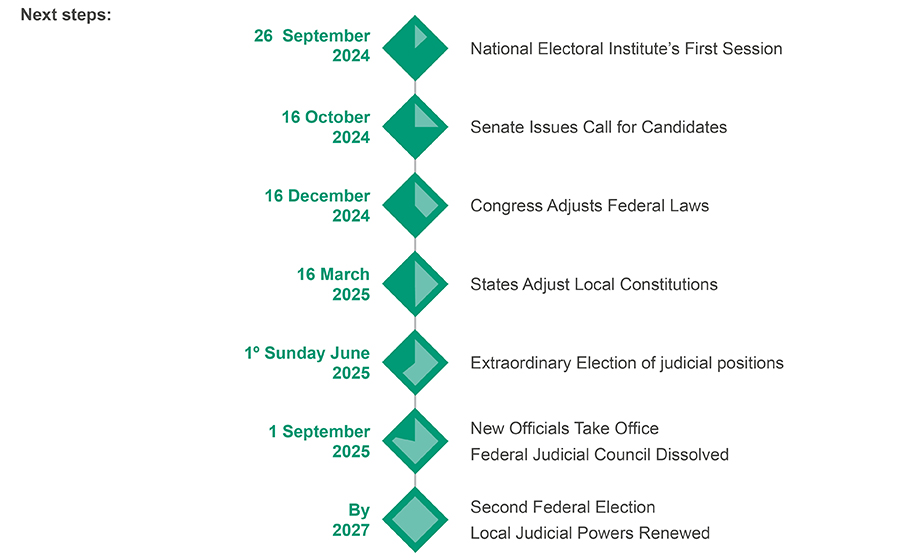Judicial reform in Mexico: relevant changes in the Supreme Court, the Council of the Federal Judiciary and the federal courts

The reduction in the number of Supreme Court Justices and the possibility for citizens to vote for justices, magistrates and judges are some of the new elements of this reform.
The decree by which various provisions of the Mexican Constitution regarding the judicial system are amended was published in the Official Gazette on 15 September 2024.
Below, we analyze some of the key aspects of the reform and the next steps in its implementation.


Some of the changes will require the enactment or amendment of secondary laws, which will have to be approved within a period of 180 days after the enactment of the reform (including local laws). The individuals currently holding the positions mentioned above at the time of the Senate's call for the extraordinary election will be included in the lists to participate in the 2025 extraordinary election, unless they decline their candidacy before the call closes or are nominated for a different position or judicial circuit. If not elected by the public for a new term, they will conclude their term when the newly elected public servants take office, in accordance with the transitory provisions of the decree.
Critics of the reform argue that electing judicial positions by popular vote could affect judicial independence and politicize the judicial process. Furthermore, reducing the number of Supreme Court justices and creating new judicial bodies may affect the efficiency and effectiveness of the judicial system.
Implementing the reform will take time and depends on the political alignment and technical ability of those involved. The Senate has 30 calendar days after the decree takes effect to call for assembling candidate lists for the judiciary elections.
Contacts

-
+52 55 1102 3570
-
+57 601 326 69 99
